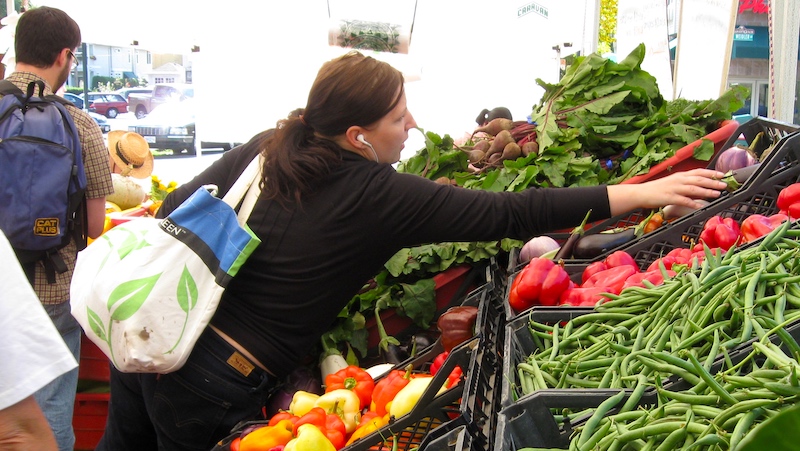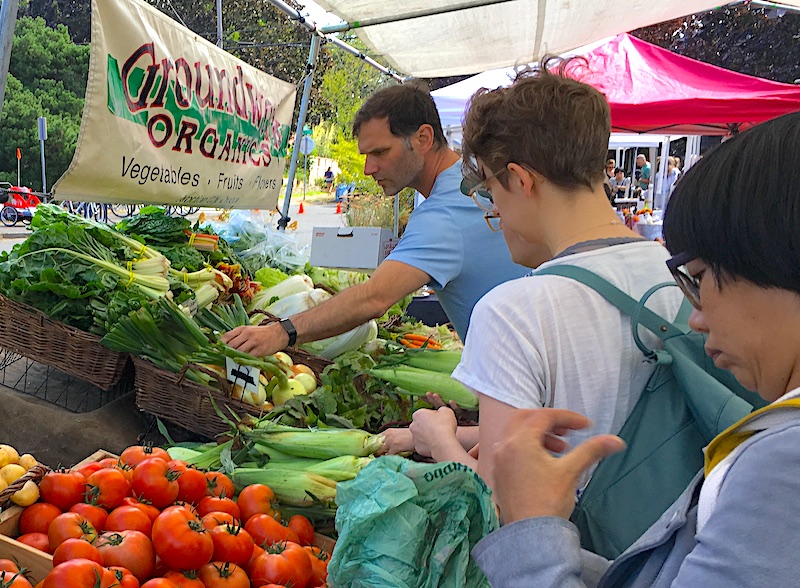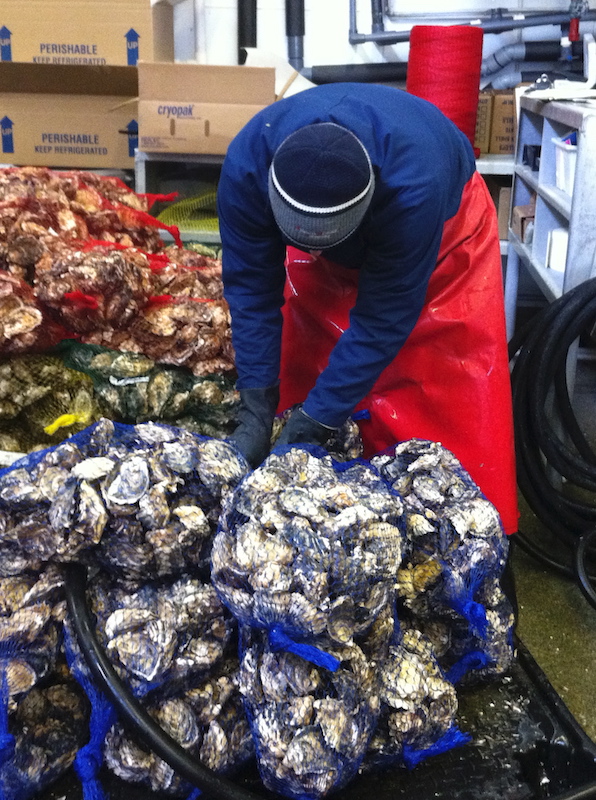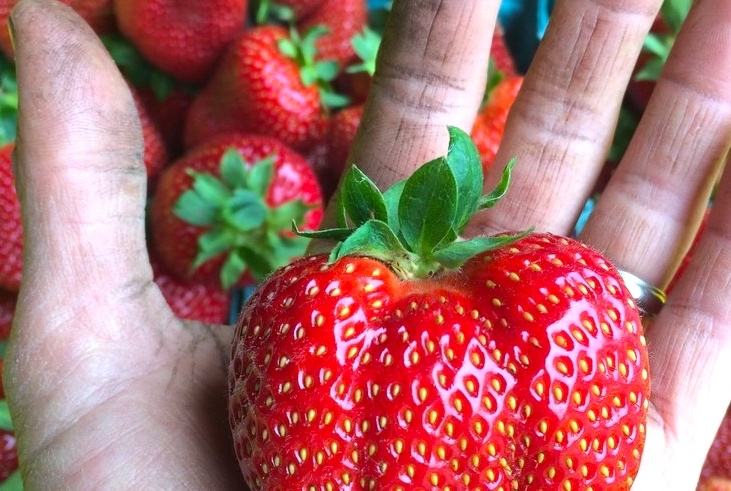
Editorial: Why Buy Local?
What does it mean to buy local?
A new phrase making the rounds is "values-based food purchasing." A recent article in Salon discusses the obfuscations rampant in our modern food industry, making it all but impossible for people to know where their food comes from or how it's produced.
"The core problem…is the anonymity of the food system."
In the article, Vern Grubinger, an extension professor with the University of Vermont, said, "The core problem, as I see it, is the anonymity of the food system." He explains that the purposely muddled double-speak used by food companies means people are making purchases that are contrary to their values, which causes us to "invest in and support the things that are broken in our food system. So much effort is aimed at symptoms when the core problem is the constant investment in the things that we don't want."
 While the article primarily addresses how this lack of transparency affects institutional food procurement, the same problem exists in our supermarket aisles and on restaurant menus. Aside from the slippery definitions of words like "natural," "humanely raised" and "cage-free," the word "local" has achieved currency as a desirable label on food products.
While the article primarily addresses how this lack of transparency affects institutional food procurement, the same problem exists in our supermarket aisles and on restaurant menus. Aside from the slippery definitions of words like "natural," "humanely raised" and "cage-free," the word "local" has achieved currency as a desirable label on food products.
Who wouldn't want to support a company that claims its product is made locally?
Think Carlton Farms, touted on menus all over town, is an actual farm that raises the animals it sells? Nope. It's a slaughterhouse owned by one of the West Coast's largest feedlot operations, and it trucks in some of the animals it processes from the Midwest and even Canada. An industry source said Carlton can legally call the pork they sell "local" because the company is based here and the pigs spend eight hours on the ground before being slaughtered.
So much effort is aimed at symptoms when the core problem is the constant investment in the things that we don't want.
Oregon's famous Tillamook cheese is, as regular readers know, being sued for false advertising by a group of consumers who allege its marketing portrays cows raised on coastal pastures by its co-op members, when in actuality it sources the vast bulk of the milk used for its products from a 70,000-cow mega-dairy in Eastern Oregon owned by a giant Midwestern corporation, R. D. Offutt.
 Want to add more local spirits to your home bar by buying from a local distiller? Check first that those products aren't made from bulk spirits imported from a factory far from Oregon. Many local distillers advertise their products as "locally produced" when they're actually importing bulk spirits that they only have to pump into barrels and blend or age here—it's worth asking if the producers truly distill their own alcohol.
Want to add more local spirits to your home bar by buying from a local distiller? Check first that those products aren't made from bulk spirits imported from a factory far from Oregon. Many local distillers advertise their products as "locally produced" when they're actually importing bulk spirits that they only have to pump into barrels and blend or age here—it's worth asking if the producers truly distill their own alcohol.
Even at farmers' markets it can sometimes be unclear where ingredients for products come from or how they were produced. The practice of aggregating produce collected from several farms has pretty much been discouraged by responsible markets, but what about processed products like jams, cakes and pastries? Does the fruit come from market vendors or from local farms? Is the flour from local fields or a national company?
"Vendors in our market do not have to identify the origin of ingredients in prepared or processed foods," said Market Master Ginger Rapport of the Beaverton Farmers Market, though she notes that at the Beaverton market all products must be made in Oregon or Washington—the market doesn’t allow a local company to sell something that is made elsewhere.
 Rapport adds that while sourcing locally is encouraged, requiring vendors to buy from local sources can be problematic. "What if that farm runs out of what you need? What if the same item from two different farms, cabbage for sauerkraut for example, doesn’t taste the same and alters the final product you are making?" Plus, she notes, local products are likely more expensive than wholesale ingredients from a larger supplier.
Rapport adds that while sourcing locally is encouraged, requiring vendors to buy from local sources can be problematic. "What if that farm runs out of what you need? What if the same item from two different farms, cabbage for sauerkraut for example, doesn’t taste the same and alters the final product you are making?" Plus, she notes, local products are likely more expensive than wholesale ingredients from a larger supplier.
The bottom line?
Making conscious choices about the food you buy and eat based on your values makes a big difference in our local food system. Buying from small, local farmers and fishing families practicing sustainable methods supports them, their communities, and the health of the environment we all share. It keeps money circulating locally rather than being sent far away, helping make local systems more robust.
So know your farmer. Ask questions, not only of your farmers, but of your legislators. Tell your friends and neighbors why you make the choices you do. Get informed. It does make a difference.
The Beaverton Farmers Market is a sponsor of Good Stuff NW. Photo of strawberry from Valley Flora Farm.